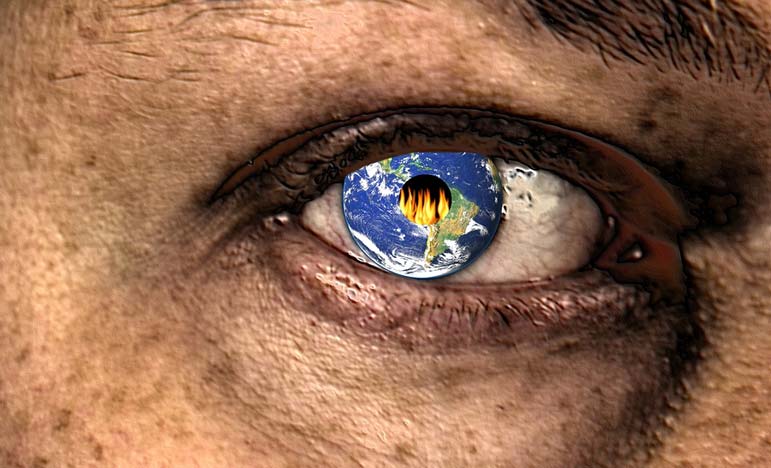
On Nov. 9, 1989, the impending death of the Soviet Union occasioned a delirium. First, the fall of the Berlin Wall. Then the disintegration of the U.S.S.R. itself. It marked the disappearance of the world's leading communist state and the end of the very idea of communism as a plausible system of social and political organization. And the end of six decades of existential struggle between a democratic West and the totalitarianisms of the left and right that had defined world politics since the 1930s.
It was possible in that dawn to believe that we had reached the peak of mankind's political development. The romantics among us called it the end of History - the capital "H" being homage to the transcendent, self-conscious History of 19th-century German philosophy. It was the vindication of Churchill's aphorism that democracy is the worst form of government except for all the others.
The others having failed, what was left standing was a political system - the modern capitalist democracy of universal suffrage, the rule of law, guaranteed rights and the peaceful and regular transfer of power - that balanced and satisfied individual, communal and national needs. A democratic future, gradually expanding throughout the globe, seemed assured.
Three decades later, the landscape has changed radically. The slide back away from liberal democracy is well underway. That was perhaps to be expected: History has been unkind to every stripe of utopian thinking. But it is not just that we have failed to achieve the messianic future. Even the democratic present is under widespread assault.
Though disappointing, democracy's failures among the collapsed autocracies of the developing world were understandable, given how difficult democratic transition has proved elsewhere. More dispiriting was rollback where the foundations of democracy had already been laid: functioning democracies systematically undone and effectively transformed into dictatorships, most prominently in Turkey and Venezuela.
And now, in a development once unimaginable, mature Western democracies are experiencing a surge of ethnonationalism, a blood-and-soil patriotism tinged with xenophobia, a weariness with parliamentary dysfunction and an attraction - still only an attraction, not yet a commitment - to strongman rule.
Its most conspicuous symptom is a curious and growing affinity for Vladimir Putin. Remarkably, this tendency is most pronounced on the right. After decades of left-wing apologists for Russia, it is now conservatives asking: What's so bad about Putin anyway? Upholder of traditional values, defender of the faith, restorer of order through ruthlessly centralized power, he took a basket case of a country and made Russia great again, did he not? Sure, he emasculated the opposition, shut down independent media and regularly kills political opponents and journalists. But he's got omelets to make.
Contrast that with decline and decay in the West. Paralyzed by process and grown decadent, it cannot rouse itself to defend its values, its borders or its history. Instead, it passively watches the debasement of its foundational institutions of family, church and community.
European fascination with Putin-style authoritarianism is far more developed than the American variety. All its characteristics are found in the ideology of populist parties sweeping the continent. Its most alarming manifestations appear in two post-Soviet democracies, once heralds of the post-Cold War dawn: Hungary and Poland.
How to account for the retreat? In the aftermath of World War II, the same question arose in addressing that era's totalitarian temptation: the rising, powerful communist parties of the West. At the time, conventional wisdom described it as a flight from freedom: democracy's burdens were too heavy, the attractions of security too many.
Traditional rights - the "negative liberty" of being left alone, especially by the state - were derided as bourgeois. True human rights were concrete and material - the right to sustenance, to work, to shelter, to physical protection. Note that these were not freedoms fromthe state, but benefits that could only be conferred by the state. The resulting dependency is the very antithesis of freedom.
But the argument found many takers. After all, went the cliche, what was free speech to people with empty stomachs? Given the abject destitution suffered amid the rubble of the war, that may adequately explain the attraction of totalitarian parties in the 1940s and 1950s.
It does not, however, explain the flight from freedom today. After all, it's been well and widely demonstrated that liberal democracy is infinitely superior in producing not just freedom but prosperity as well. The economic security promised by socialism and the various collectivisms has turned out to be a fraud.
No. What drive people away today from the classic liberal democratic model are considerations not economic but cultural. The hunger is not for bread but for ethnic, tribal and nationalist validation. For respect, recognition and purpose. Betrayed by globalist elites, pettifogging democrats and politically correct politicians, what attracts Westerners to authority is the image of strength and self-assertion.
That the traditional left-right political divide is increasingly being surpassed by the nationalist-globalist and authoritarian-democratic divide is disturbing and potentially ominous. Left vs. right we learned how to manage, if after a century and a half. Authoritarian vs. democratic may be more difficult. It's not just new; it's coming at a time of profound civilizational self-doubt. In such circumstances, the unimaginable often becomes imaginable.
We have traveled far in the last three decades. Wrote Wordsworth in the romantic rapture that was the promise of 1789: "Bliss was it in that dawn to be alive." We know how that ended. How does the End of History end?
(Buy "The Point of It All", from which this essay was excerpted, at for just $12.24 by clicking here or order in KINDLE edition at a 50% discount by clicking here. Sales help fund JWR.)
Sign up for the daily JWR update. It's free. Just click here.
Charles Krauthammer was an American Pulitzer Prize-winning syndicated columnist, author, political commentator, and physician. His weekly column appeared in more than 400 newspapers worldwide.


 Contact The Editor
Contact The Editor
 Articles By This Author
Articles By This Author